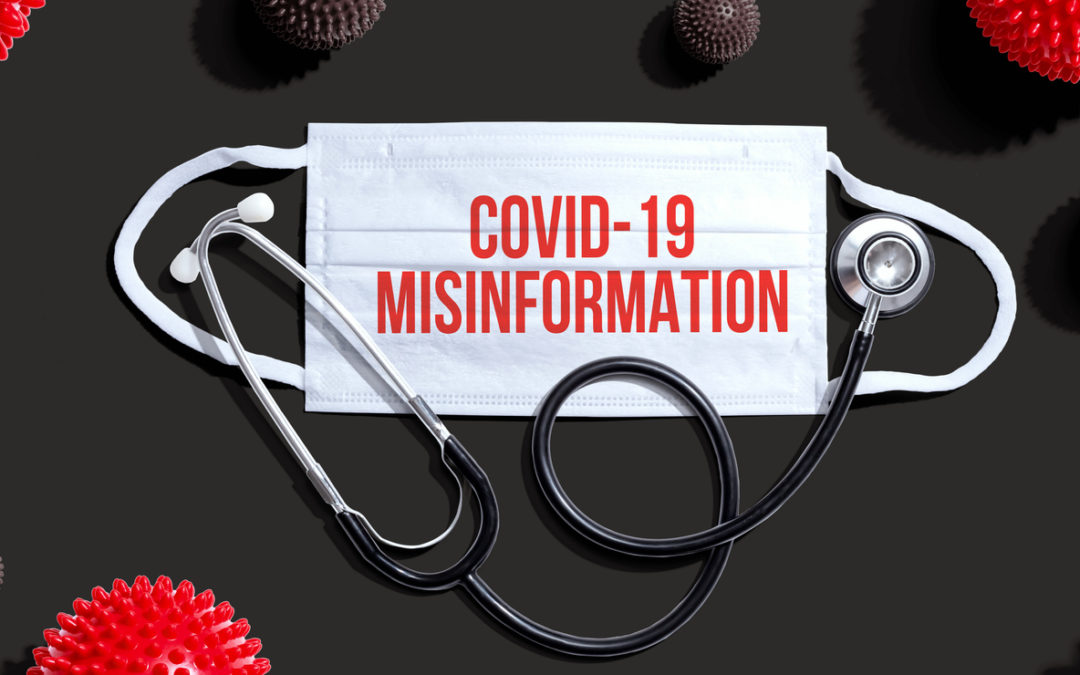
Consequences of Spreading COVID Misinformation
Believe it or not, during the COVID-19 pandemic, some nurses have been spreading misinformation about the virus and all its variants. Doing so, however, isn’t a small thing. In fact, you can lose your job over it.
Georgia Reiner, MS, CPHRM, Senior Risk Specialist with the Nurses Service Organization (NSO), took time to answer our questions about this bizarre phenomenon.
Spreading misinformation about COVID is wrong, no doubt. But nurses may not be thinking of the consequences that face them if they do it. Why can nurses face disciplinary action by their State Board of Nursing? How do they determine if information is incorrect?
Holding a nursing license means upholding the standards of the profession and the principles of the ANA Code of Ethics for Nurses. Spreading misinformation about COVID-19 vaccines, treatment, and masking—either verbally or on public forums or social media—can be harmful to public health and the nursing profession. When nurses identify themselves by their profession, The National Council of State Board of Nursing (NCSBN) says that they are accountable for the information they share with the public. Using nursing credentials to discuss medical information can be considered nursing practice because the public views nursing credentials as evidence of a nurse’s knowledge and trustworthiness. As such, the NCSBN says that nurses who disseminate COVID misinformation can face disciplinary action from their State Board of Nursing, which can jeopardize their license and career.
The NCSBN defines misinformation as “distorted facts, inaccurate or misleading information not grounded in the peer-reviewed scientific literature and counter to information being disseminated by the Centers for Disease Control and Prevention (CDC) and the Food and Drug Administration (FDA).”
What are some tips that can help nurses spot misinformation online?
It can be difficult to differentiate between factual information and news that comes from legitimate sources from rumors, opinions, falsehoods, and conspiracy.
Here are some tips to help nurses spot misinformation online:
- Analyze both the content and the source.
- Does anything seem too good to be true? Does information seem dramatic or overblown? If something seems outrageous, check with reputable news sources and fact checkers to confirm what may have really happened.
- Does the author use sensationalistic language or lack specific evidence? Opinion and news commentary represent a point of view, while fact-based writing or analysis represent facts that are framed in appropriate context. Examine supporting evidence to see if the cited sources are reputable and if they support the claims being made.
- Is the source of this information fake news or satire? In today’s world, sometimes satire can seem somewhat plausible. When you’re checking sources, visit the “About” or “Contact Us” section of its website. If it is satire, it should say so on the site, and illegitimate sources won’t share information about their mission, staff, physical location, or a way to contact the organization.
- Examine the author
- What other content have they produced in the past? Reviewing an author’s past work can reveal an agenda or point of view if they have repeatedly published content on the same topic.
- Try to identify the intent behind the post or information. Information can be deliberately altered to push an agenda, such as damaging someone’s reputation, endorsing a belief system, or getting users to click on or share an article to help drive advertising revenue.
- Engage in self-reflection
- Evaluate how the information fits into your pre-existing beliefs. People often rely on their personal beliefs to understand evidence, and confirmation bias leads people to seek out information that supports their pre-existing beliefs.
- Check to see if there are any articles refuting what you read. Oftentimes, when a piece of misinformation becomes mainstream, reputable authors will provide evidence that explains why a particular claim is false.
Resources:
- Syracuse University School of Information Studies. (2021). 5 ways to spot misinformation and disinformation online. Retrieved from https://ischool.syr.edu/5-ways-to-spot-misinformation-and-disinformation-online/.
- Mantzarlis, A. (2021). Spot misinformation online with these tips. Google News Lab. Retrieved from https://blog.google/products/news/fact-checking-tips/.
- Kiely, E. & Robertson, L. (2016). How to spot fake news. FactCheck.org. Retrieved from: https://www.factcheck.org/2016/11/how-to-spot-fake-news/.
- Office of the U.S. Surgeon General. (2021). A Community Toolkit for Addressing Health Misinformation. Retrieved from: https://www.hhs.gov/surgeongeneral/reports-and-publications/health-misinformation/index.html.
How can nurses address incorrect information or misperceptions with their patients? With the public? What can/should they do in either case?
Nurses and other health professionals play a critical role in proactively engaging with people to help counter COVID misinformation. One of the most effective strategies is to use personalized, individual communication.
When nurses speak with their patients and the public, they should understand that using shame or embarrassment can often lead to the opposite intended effect. Fact-checking to prove a point can also shut down a conversation. It’s important to be patient, caring, understanding, and empathic. People have different needs, backgrounds, and experiences that shape their fears and beliefs. Nurses should try to focus on the bigger issue and the person’s feelings about the issue, rather than the false claims they may support. Asking questions and listening with empathy are great ways to understand perspective.
It’s critical for nurses to acknowledge that finding credible information online is challenging. If they’re open to assistance, nurses can help people identify reliable sources for accurate information or connect them with another health professional who can help them make informed decisions on their own.
Resource:
- Office of the U.S. Surgeon General. (2021). A Community Toolkit for Addressing Health Misinformation. Retrieved from: https://www.hhs.gov/surgeongeneral/reports-and-publications/health-misinformation/index.html.
Anything else?
In our highly polarized political environment, some nurses may believe it is effective to use their nursing credentials online to validate the opinions they share. However, the internet is written in ink, not pencil. You can have conservative privacy settings in place, and you can try to delete posts after the fact, but the best defense against allegations of unprofessional behavior online is to exercise caution before posting anything related to your nursing practice or health care in the first place.


